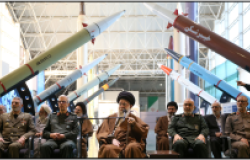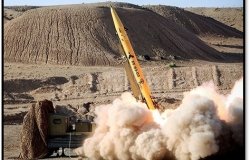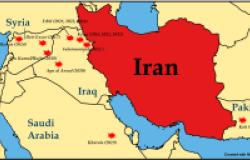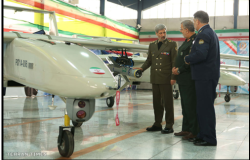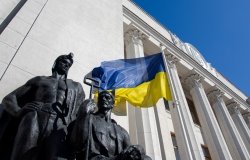The Role of National Security Export Controls in a Globalized Economy: Findings and Recommendations of the National Academies' 2009 Report
Mitchell Wallerstein, Dean, Maxwell School of Public Affairs, Syracuse University; Patricia Wrightson, Program Director, Policy and Global Affairs Division, The National Academies
Overview
This meeting, jointly sponsored by the Center's International Security Studies and the Los Alamos National Laboratory, was another in the ongoing Nonproliferation Forum series.
In January 2009, the National Research Council of the National Academies published the findings of an ad hoc committee chaired by John Hennessey and General Brent Scowcroft on U.S. national security controls that regulate access to and export of science and technology. Mitchell Wallestein was a committee member and Patricia Wrightson was the staff director. Wallerstein and Wrightson outlined the major findings and recommendations of the commission report.
Wallerstein stated that the committee found that current U.S. thinking on export controls reflects a "fortress America" mentality. There is a widely-held mistaken belief that the United States remains the primary source of most useful scientific ideas and products; and that the United States can continue to pursue a technology denial strategy toward potential adversaries without seriously damaging U.S. global competitiveness or jeopardizing national security.
Wallterstein argued that the Washington is still trying to enforce an export system dating to the Cold War when the global economy has entered a new era in which the United States and key NATO countries no longer have a monopoly on key technologies. The current control lists are too long, often encompassing technologies that are obsolescent or widely available in the global marketplace from foreign competitors, which operate in countries without restrictive export controls.
Since the 1980s, successive presidents have attempted, unsuccessfully, to reform the U.S. export control system. "There is gridlock at both ends of Pennsylvania," Wallerstein stated. Wrightson noted that President Obama is committed to export control reform and has directed National Security Advisor Jim Jones and National Economic Advisor Lawrence Summers to direct the administration's effort. The pertinent congressional committee chairs have also indicated an interest in revamping the now-expired Export Administration Act (EAA). In the meantime, the National Academies' report outlines various measures that can be taken through presidential executive orders. Among those recommendations are the application of "sunset" requirements on all items on control lists, the establishment of an independent export license appeals panel, and the creation of an economic competitiveness exemption to end restrictions on dual-use items (i.e., those with both civil and military applications) where there is wide foreign availability.
Thank you for your interest in this event. Please send any feedback or questions to our Events staff.


